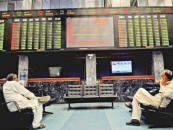A stabilised budget
Revenue collection estimate is unrealistic as govt expects 27% growth

A careful analysis of budget documents indicates that the government intends to tread a stabilisation path in fiscal year 2020-21.
Media commentators, analysts and public intellectuals have come down hard on the budget, which has been presented in a crisis situation.
The budget documents have as- sumed an accommodative mon- etary policy along with a flexible exchange rate regime with mod- erate inflation of 6.5%. By taking these assumptions, the policy- makers have to be cautious while formulating and implementing the budget due to vagaries of the exchange rate. In addition, a real gross domestic product (GDP) tar- get of 2.1% paints a rosy picture of an otherwise bleak situation.
For the upcoming year, the gov- ernment has not increased the sal- ary of its officers after a long time. However, pressure is mounting on the government from differ- ent quarters that these officials deserve an annual raise. This announcement has been made under tough economic circum- stances so that the Extended Fund Facility (EFF) remains on track.
Federal estimates of revenue col- lection are not realistic, especially for the upcoming year, as the government expects around 27% growth. Under a booming econ- omy, a government may expect that much growth in revenue.
In addition, the government first spends and then collects revenue. If spending of the government is curtailed, the revenue will not increase to the desired extent.
However, the Federal Board of Revenue’s (FBR) tax collection target of Rs4.96 trillion is quite ambitious. Heavy dependence on general sales tax (GST) along with withholding tax would continue, though the share of direct taxes is projected at around 41%.
Since the international crude oil prices are quite low, the gov- ernment has increased the pe- troleum development levy target to Rs450 billion to fetch precious non-tax revenue for itself. This won’t allow the government to pass the benefit of low in- ternational oil prices on to the masses. Hence, we should expect relatively high petrol prices in the coming year.
Even credit rating agency Fitch forecasts that the revenue target would not be met due to eco- nomic slowdown and absence of new taxes. The unachievable revenue target would result in a downward revision in the na- tional Public Sector Development Programme (PSDP), which often happened in the past.
The budget allocation for the National Highway Authority (NHA) has been scaled down by around 24%, which implies devel- opments on the China-Pakistan Economic Corridor (CPEC) would take place rather slowly.
Keeping in view the potential of the construction sub-sector, the government intends to make it an engine of growth since it has many forward and backward linkages and it has started to per-
form very well since FY15 with the news of CPEC and directed alloca- tions under the PSDP.
With a palpable decline in PSDP allocation in the past two years, the steam has petered out. Now, the government is hoping that the private sector will come for- ward and play its dynamic role, which is unlikely under the heighteneduncertainty.
In the budget, overall general subsidies have been reduced from Rs270 billion to Rs210 billion by stating that subsidies need to be rationalised. Specifically, power and petroleum subsidies are being scaled back as international crude oil prices are quite low.
However, consumers will face higher electricity prices in the second half of FY21 when the government will make an upward revision. In a nutshell, this year’s budget is the second in a row for a democratic government where attempt has been made to reduce the fiscal deficit to around 7%.
Fitch comments that the esti- mate is very conservative and the fiscal deficit will remain around 9.5%. Under the prevailing pan- demic, the government should focus on welfare-maximising measures instead of ebbing away with the wave of fiscal deficit.
THE WRITER IS THE ASSISTANT PROFESSOR OF ECONOMICS AT SDSB, LAHORE UNIVERSITY OF MANAGEMENT SCIENCES (LUMS)


















COMMENTS
Comments are moderated and generally will be posted if they are on-topic and not abusive.
For more information, please see our Comments FAQ